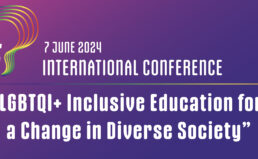
VILNIUS – Lithuanian lawmakers revised a controversial law on Tuesday that banned the promotion of homosexuality, but gay rights campaigners warned the move did nothing to assuage their concerns.
In a 58-4 vote, with 25 abstentions, parliament approved amendments to legislation that sparked criticism from rights groups in Lithuania and abroad when it was passed in July.
The original law, which had been due to come into force in March 2010, barred the “public dissemination” of information favourable to homosexuality, claiming it could harm the mental health and physical, intellectual and moral development of minors.
Homosexuality is frowned upon by many in Lithuania, where the vast majority of the population of 3.3 million is Roman Catholic.
The legislation — which also covered bisexuality, polygamy, images of heterosexual intercourse, death and severe injury, the paranormal, foul language and bad eating habits — did not specifically define public dissemination nor set down a punishment.
The changes approved on Tuesday give the law a less-specific remit, banning information “encouraging the sexual abuse of minors, sexual relations between minors and other sexual relations.”
Opponents of the law had argued that it was not only homophobic but would also impose broad censorship and violate Lithuania’s commitments as a member of the United Nations and the European Union.
Lithuania’s President Dalia Grybauskaite had demanded that parliament amend it.
“The homophobic clauses have been removed. The law is in line with European standards,” her spokesman Linas Balsys told AFP Tuesday.
But Vladimir Simonko, head of the Lithuanian Gay League, said problems remained with the legislation and alleged it had been crafted by “a bunch of Bible-bashers.”
The amended law dubs as damaging the promotion of “any concept of the family other than that set down in the constitution,” which stipulates that marriage is between a man and a woman.
“From now on, any of our public events could fall under that clause and be banned,” Mr. Simonko said.
In 2007 and 2008, Lithuanian municipalities banned EU-sponsored anti-discrimination events. They have also barred local campaigners from holding several public gatherings.
Gay rights activists from Lithuania and neighbouring Latvia and Estonia are nonetheless planning to hold a high-profile Baltic Pride march in Vilnius next May.



